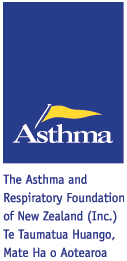In this article 
View / Download
pdf version of this article
Nebulisers are used to deliver bronchodilators to people with asthma or COPD or antibiotics to those with bronchiectasis.
There is now substantial evidence that the use of a metered dose inhaler (MDI) with a spacer is just as effective as
a nebuliser, even in acute asthma.
Indications for nebuliser use
For acute deteriorations in asthma or COPD
- If the patient is unable to use a MDI and spacer e.g. very young children, intellectual disability, anxiety.
- If the episode is so severe that the rate of breathing is above 30 per minute at rest (in an adult), and the patient
is unable to inhale from a spacer properly.
- The patient has a condition e.g. rheumatoid arthritis, which impairs use of the MDI or spacer.
- If the patient has a history of "crashing" or life-threatening asthma.
For chronic asthma or COPD
- For a patient with COPD whose lung function is so poor that they cannot inhale properly from any hand held delivery
device.
- For a patient with asthma or COPD with another disability which prevents them using a MDI and spacer.
For cystic fibrosis or bronchiectasis
- For delivery of prophylactic antibiotics.
- For delivery of hypertonic saline.
- For delivery of DNA-ase.
What are the potential harmful effects of nebuliser therapy?
Regular nebulised bronchodilator therapy (i.e. for more than a few days) should be avoided. The risk of adverse effects
is based on the following:
- The delivered dose using a nebuliser is high. The dose in a single nebule may be equivalent to either 25 or even 50
puffs of bronchodilator from a MDI.
- Beta-agonists have a pro-inflammatory effect when given at high doses.
- Beta-agonists result in an increase in airway hyper-responsiveness (AHR) when given regularly or at high doses.
- In some patients the increase in AHR is associated with rebound bronchconstriction at the end of the dosing interval.
Therefore, a vicious circle develops in some patients because with increased inflammation and AHR, symptoms worsen and
there is a perception that even more "reliever" is required.
There are other pitfalls. Using a nebuliser may create a false sense of security, especially during an acute episode
of asthma. The temporary relief from a high dose of nebulised bronchodilator may result in a delay in starting steroid
therapy - or in ringing the ambulance. Also, the "rush" which occurs with nebulised beta-agonist - often associated with
a fast heart rate or tremor - is enjoyable for some people. "Reliever" beta-agonists are modified forms of adrenaline
and, because the delivered dose of nebulised beta-agonist is so high, it affects not only the airways but other organs
also. The "adrenaline rush" is therefore real, and psychological dependence may occur.
These problems may be encountered in people with COPD just as much as in people with asthma, although the evidence is
less clear cut. In people with predominantly emphysema, there is an additional problem - the smooth muscle relaxation
which occurs with nebulised bronchodilator may actually cause "floppy" airways to collapse. Paradoxically the patient
gets worse, not better. Some patients may benefit from beta-agonist withdrawal.

Psychological dependence on beta-agonists is a recognised problem. One of the ways of identifying psychological dependence
is to measure peak flow at times when the patient feels the need to use the nebuliser and then afterwards. If there is
no fall in peak flow associated with symptoms, or no increase with bronchodilator, then it may be that symptoms are not
due to bronchospasm but something else, including vocal cord dysfunction or anxiety hyper-ventilation. This scenario may
not apply to patients with COPD in whom the relationship between airway spasm and symptoms is less clear.
A very carefully constructed plan of action to wean someone off excessive beta-agonist therapy may be required. Sometimes
it even requires admission to hospital for 3-4 days so that the patient can be weaned off safely. If this situation arises,
consultation with a respiratory specialist is advised.
Professor D. Robin Taylor,
Medical Adviser,
Asthma and Respiratory Foundation of New Zealand.
July, 2008